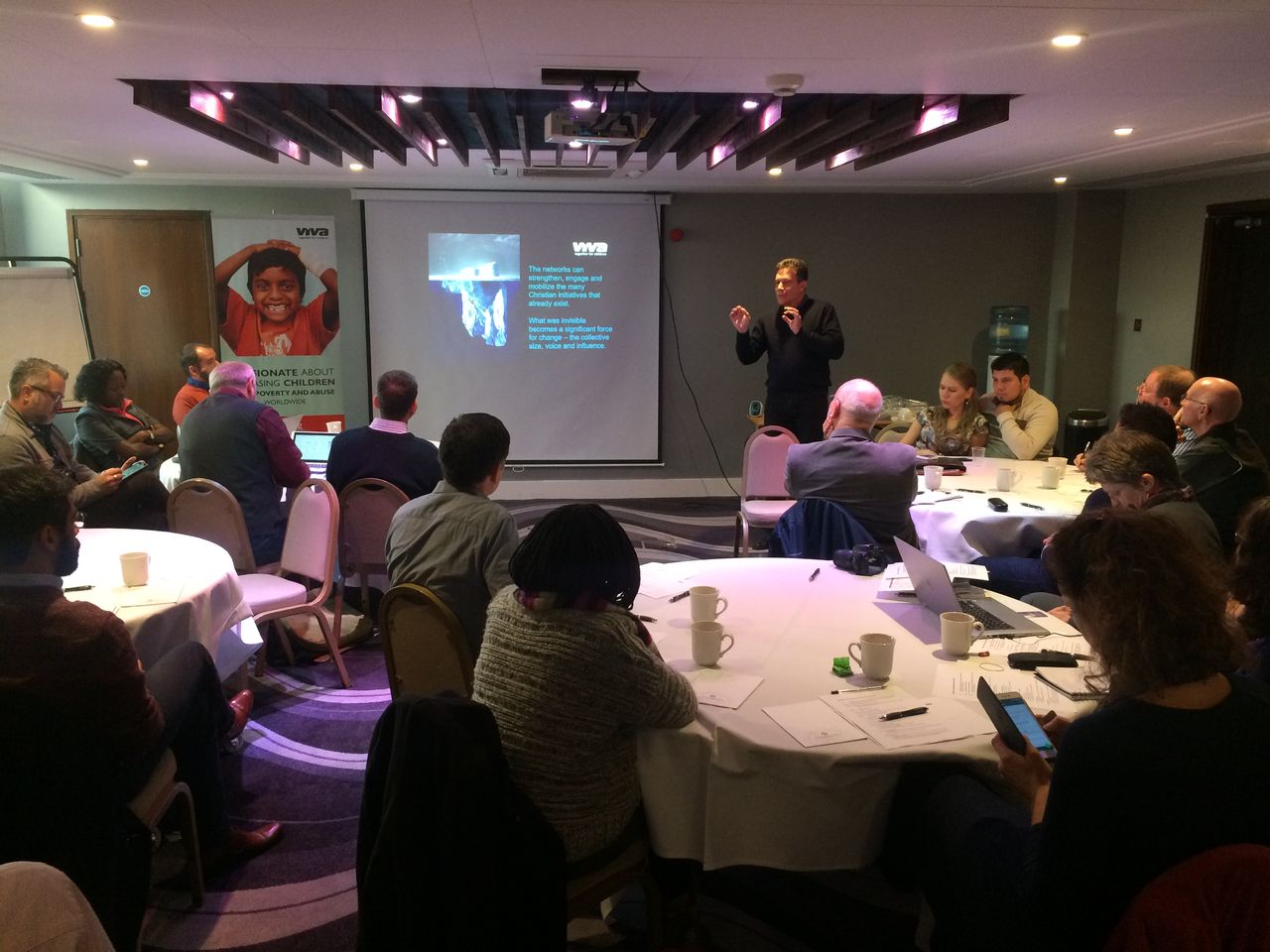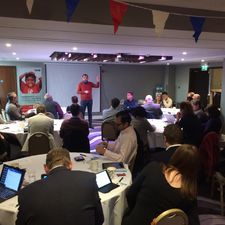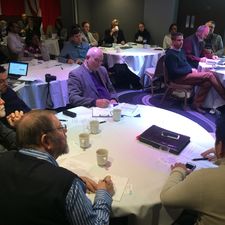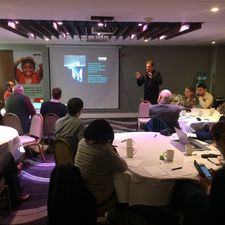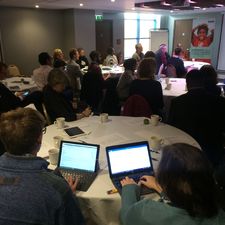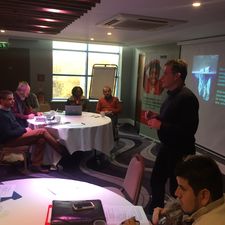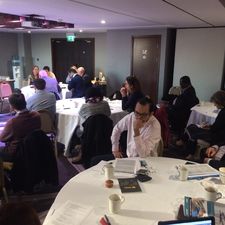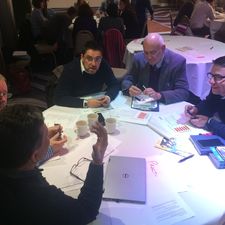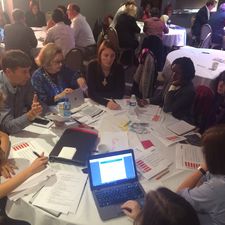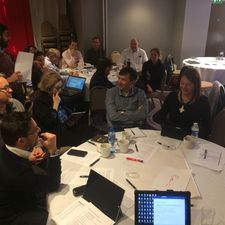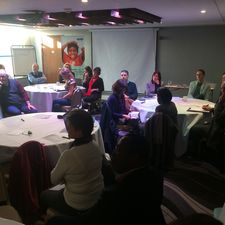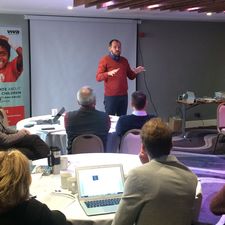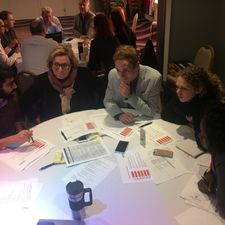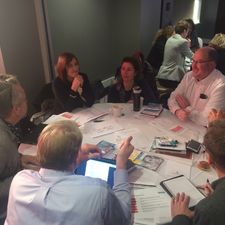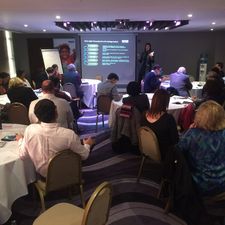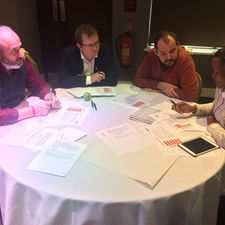Viva International and World Without Orphans organized a City Without Orphans Round-Table on December 5th, 2016 in London. 41 participants from 14 countries spent the day together exploring the possibility of a city-wide collaboration with the aim of achieving change for children and families through a transition from institutional care to family-based care.
Starting with the continuum of care model as the basis of change, and drawing on the experience of the CRANE network in Kampala, the group started to imagine what it might look like if every child in a city was benefitting from living in a strong, safe, loving family. The aim was to think beyond the limits of our individual organisations and begin to dream about how, by working collectively, we could change the attitudes, behaviours and actions of every person within a city so that they are supporting children in families.
Changing Attitudes, Behaviours and Actions around Family-Based Care
We began by discussing how to change attitudes and behaviours in practitioners, churches, public opinion, and in city and state authorities. We looked at ways to develop strategies to target actors at each stage of the continuum of care, through family strengthening and reintegration, the provision of temporary shelter and finding alternative family-based care for children.
- When working with practitioners, it was agreed that we need to build on the impressive history of Christians responding to the needs of vulnerable children. We should be supporting practitioners in their motivation to work with children and offering them alternative models of family-based care, building up their awareness, knowledge and skills and setting achievable targets for change.
- To increase our support of churches, there was discussion on how to integrate family-based care into a discipleship model. This could be done by building awareness with pastors so that they are able to share with their congregations, and by promoting a theology of the family with the aim of strengthening families both within and outside the Church. It was suggested that training on family-based care for children could be delivered at theological colleges and also that training was needed on how churches can collaborate.
- To change public opinion, a multi-layered marketing message is required which ranges from one to one interactions through to national media campaigns. Key influencers should be identified and compelling data is required to influence people at every level (national, city and local community).
- Engaging with city and state authorities could include: supplementing funding for training, offering direct services, inviting officials to meet with children, foster parents, social workers, churches etc. and praying together for city leaders and officials.
A Replicable City Model: Partnership Approach, Building A City-Wide Collaboration
To solve the complex issues and to see every child in a city living in a safe and loving family, we need higher level, system-wide transformation. We heard from the CRANE network in Kampala regarding their success in reintegrating over 1,000 children from 40 Child Care Institutions back into families. However, despite working with over 120 churches and NGOs in their network, there are still estimated to be over 500 Child Care Institutions in Kampala and 2,000 churches that are not in the network. CRANE does not have the capacity to reach all of these actors in the city.
An invitation was therefore extended to organisations represented in the room to consider collaborating with Viva and CRANE to eventually engage with other civil society groups and public and private sectors, in formulating a city-wide approach to family-based care for children. The hope would be to pilot something in Kampala that could become a model to be replicated in other cities. A meeting to continue the exploration of this pilot is planned in March 2017 in Kampala, Uganda.
If you are interested in finding out more about the Kampala city pilot or engage on a broader level regarding a replicable model, please contact us at info@worldwithoutorphans.org and we’d love to explore your potential involvement!
